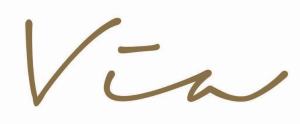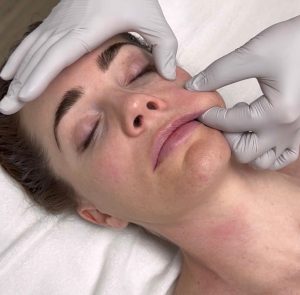Does this sound familiar?
You wake up with a sore jaw. It’s a dull ache, maybe some stiffness. By the end of the day, that tightness has crept up to your temples or ears. Chewing feels annoying. Your jaw clicks when you yawn or eat. And it’s been happening more often lately.
If that rings true, you’re not alone—and more importantly, there’s something you can do about it.
Jaw tension is incredibly common, especially if you’re balancing work, screens, stress, and maybe less-than-ideal sleep. But here’s the good news: you don’t have to live with that clenched, uncomfortable feeling. Let’s take a look at what’s going on and how a targeted jaw tension relief massage, including buccal massage, can offer real, lasting relief.
First—What Does Jaw Tension Feel Like?
Jaw tension can sneak up in ways you don’t expect. Here are a few signs you might be dealing with it:
- A dull ache near your jaw, temples, or ears
- A tight or tired feeling when opening your mouth
- Clicking or popping in the jaw joint
- Headaches or even neck and shoulder discomfort
- Sensitivity in your teeth without dental issues
And here’s the thing: most people don’t even realize how much tension they’re holding until they try a gentle self-check.
Try This Simple Jaw Self-Check
Step in front of a mirror, relax your face, and slowly open your mouth.
Notice any of these?
- One side opens more or faster than the other
- Your jaw veers to one side
- You hear clicking, feel shaking, or can’t open wide without discomfort
Now, use your fingers to gently press into your cheeks and under your cheekbones. Feel any tender, sore areas? That’s muscle tension talking.
What’s Causing the Tension in the First Place?
There are a few very common culprits—and you might be dealing with more than one at the same time.
Stress & Emotional Holding Patterns
Let’s start with the big one: stress. When we’re overwhelmed, our bodies go into survival mode—and for many people, that means clenching the jaw without even noticing. Over time, this builds into a chronic habit.
Teeth Grinding or Clenching (a.k.a. Bruxism)
If you wake up with jaw pain or sore teeth, you might be grinding or clenching in your sleep. It’s a very common side effect of anxiety and disrupted sleep patterns.
For more on bruxism and how it affects the jaw, check out this Mayo Clinic overview.
Tech Neck & Poor Posture
Staring down at a screen all day? That forward head posture (aka “tech neck”) pulls on your neck and jaw muscles. Over time, the misalignment adds pressure and imbalance to your entire face.
Repetitive Use from Talking, Chewing, or Singing
Do you talk a lot for work? Sing? Chew gum constantly? These small, repetitive actions can overwork the masseter and temporalis muscles without you realizing it.
What Helps: Jaw Tension Relief Massage
If your jaw is holding stress, tension, or discomfort, massage is one of the most effective ways to release it—and feel better fast.
At Via Skincare, we specialize in facial massage techniques that specifically target jaw pain, TMJ tension, and facial discomfort. One of the most powerful tools we use is Buccal Massage, a gentle intraoral technique that works the jaw muscles from the inside of the mouth.
Why Buccal Massage Works So Well
- Reaches deep muscles like the masseter and pterygoids, which are hard to access externally
- Helps realign the jaw, improve range of motion, and reduce pressure
- Relieves tension, softens facial expression, and improves circulation
- Can even help with headaches, TMJ pain, and visible facial asymmetry
A Natural Alternative to Botox or Meds
Many clients come to it after trying medications, mouthguards, or even Botox for jaw pain. And while those options might help some people, they don’t address the root cause— tight neck and shoulder muscles and restricted fascia and stress.
Facial massage, especially buccal massage, is a non-invasive way to release that tension naturally. It doesn’t freeze or mask the problem. It works with your body to restore balance.
Bonus? It’s surprisingly relaxing once you settle into it. Most clients leave feeling lighter, looser, and more connected to their body.
What to Expect in a Session
Your first jaw tension relief massage session is all about understanding what your body needs. We’ll start by assessing your alignment and muscle engagement—externally and, if needed, internally through buccal work.
Each session is completely personalized. Depending on your symptoms, we may also incorporate:
- Manual lymphatic drainage to reduce inflammation
- Myofascial release for deeper muscle work
- TMJ-specific massage to target jaw mobility
How Often Should You Get Jaw Massage?
For most clients, once a week for 3–4 sessions is a good starting point to retrain muscle patterns and reduce discomfort. After that, many transition to monthly maintenance—or come in when stress ramps up.
Want to speed up your results between sessions? We also teach simple self-massage techniques and jaw exercises to do at home.
Ready to Stop Living with Jaw Tension?
You don’t have to wait until the pain gets worse. If your jaw is tight, your face feels tired, or you’re noticing signs of TMJ disorder, let’s take care of it—gently and naturally.
Book your Jaw Tension Relief Massage in Los Angeles now!
Or feel free to reach out to us with any questions. We’re always happy to talk through what’s going on and recommend the best next step.



